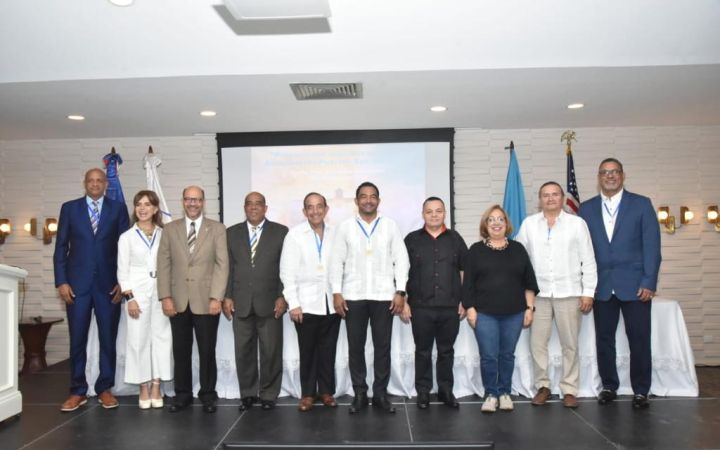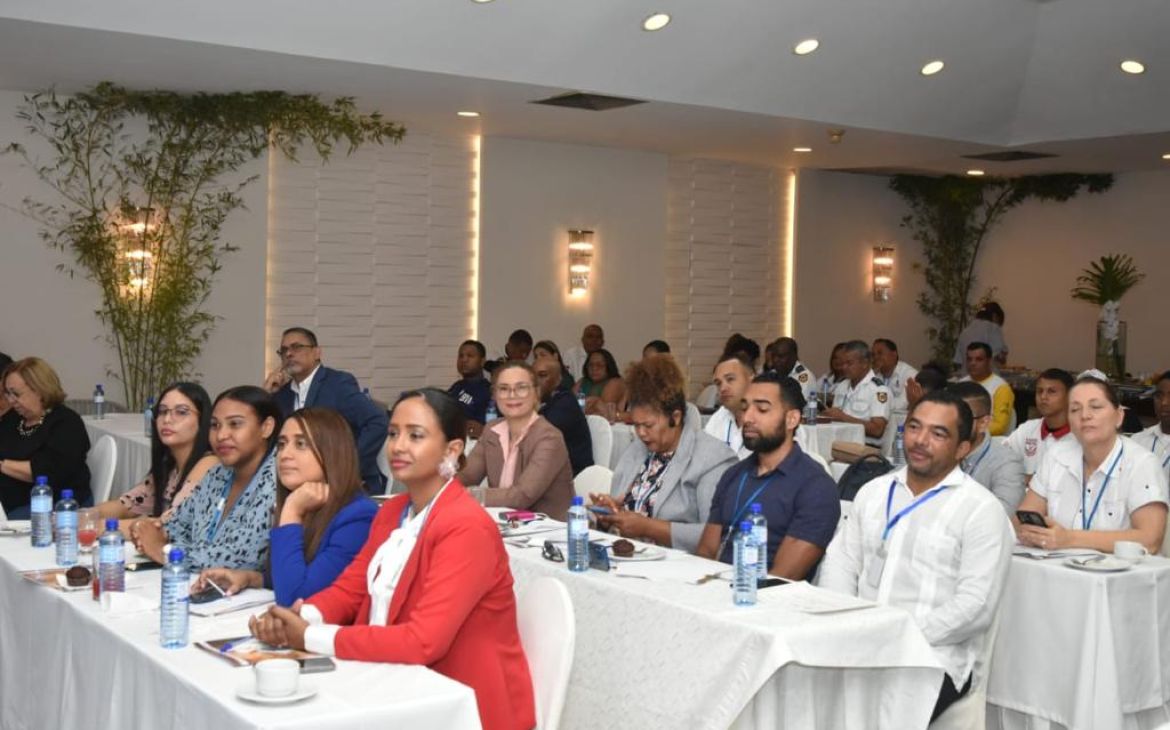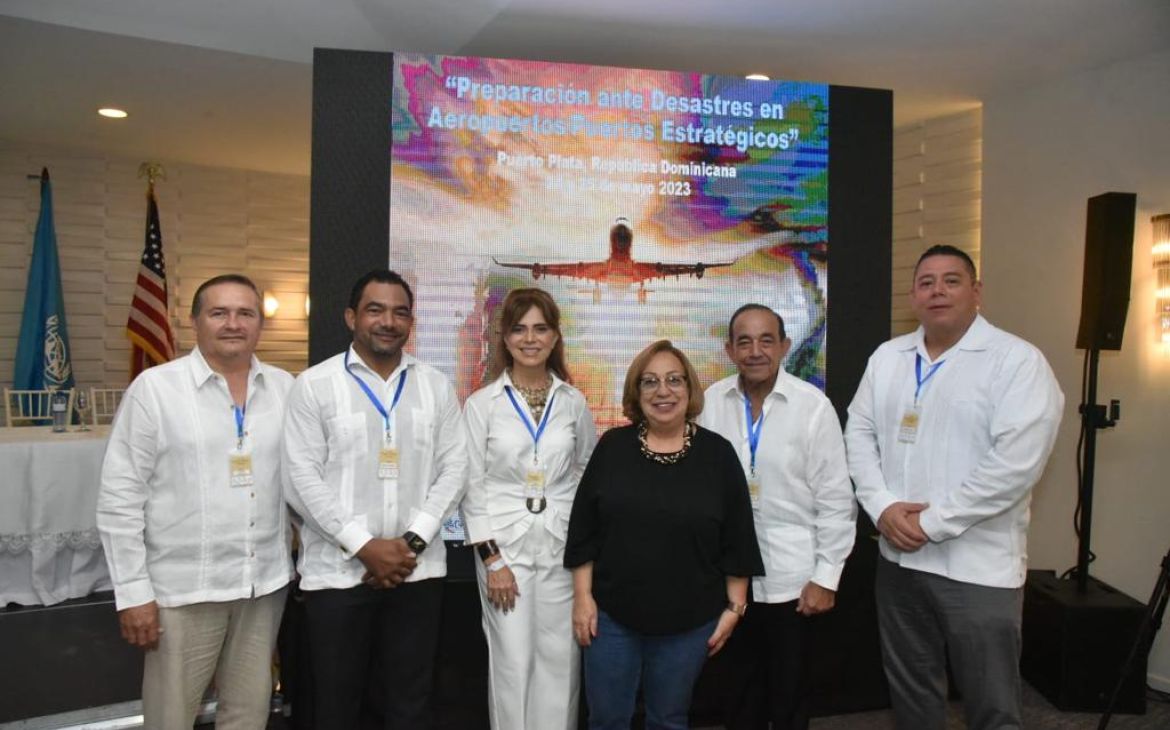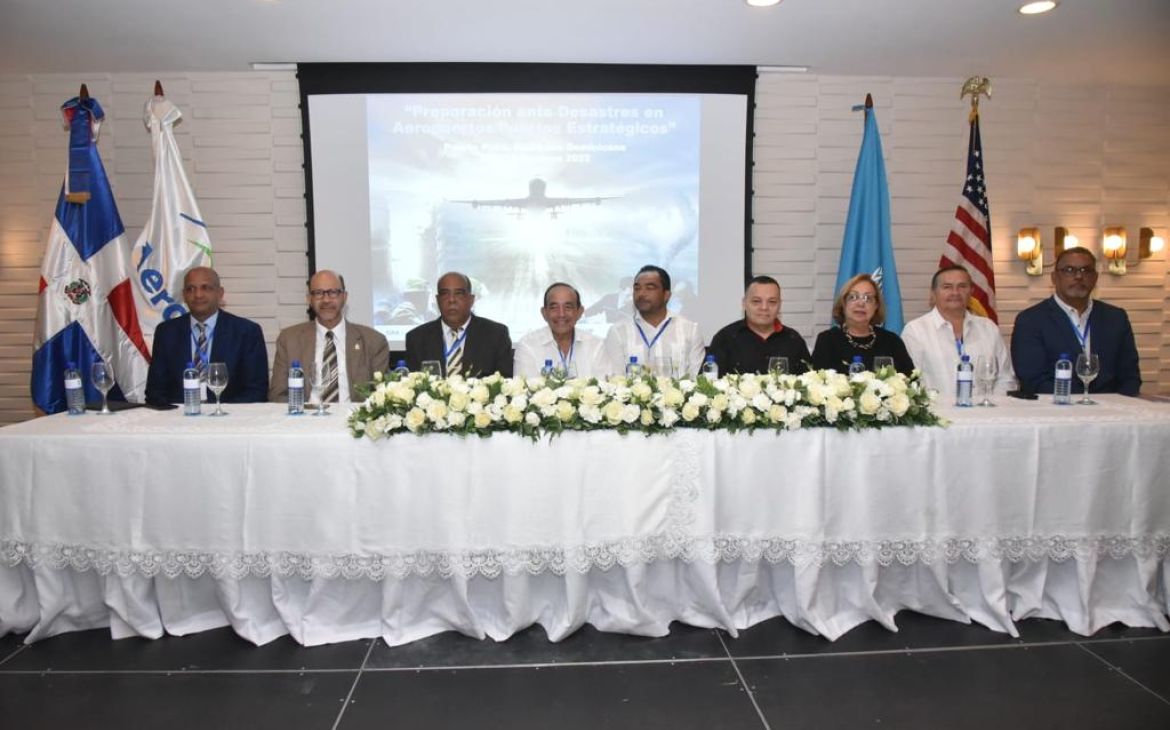24 – 25 May, Puerto Plata, Dominican Republic – Being aware of the important role that country entry points play in the response to a disaster situation, especially in tourist destinations, CIFAL Merida and ASUR Group (Southeast Airport Group, ASUR), developed the seminar "Disaster Preparedness in Ports and Airports". This event was held in alliance with other regional stakeholders such as AERODOM (Dominican Airports); ASHONORTE (Association of Hotels, Restaurants and Tourism Enterprises of the North); and the Outreach Aid to the Americas and Community Port Resilience Program; and, for the first time, was carried out in the city of Puerto Plata in the Dominican Republic.
The two-day seminar is part of the Community Port and Community Disaster Preparedness and Resilience Program (C-PReP). This outstanding activity is supported by FedEx, with the continued collaboration of the ASUR Group, and certified by CIFAL Merida (International Training Centre for Authorities and Leaders), an associated centre of UNITAR.
This event featured more than 15 local and international experts, who shared important recommendations for the airports to respond adequately in a disaster situation. Held for the first time in Puerto Plata, the activity had a regional focus considering the importance of the area as a hub for the movement of passengers, cargo, and tourism.
"Consolidating resilient airports; being ready for the tropical cyclone season; guaranteeing the embarkation and disembarkation of humanitarian aid; strengthening the strategy of mirror airports and alternate airports; and guaranteeing effective chains of communication between the airport community and its cities is our mission as members of this seminar that is being inaugurated today, in a strategic area of the Caribbean Sea and the Antilles. Many of you represent the opportunity to minimize the impact of the phenomena through prevention. Recovering the operation of our airports and ports is fundamental when the force of nature is imposed" said in his speech Mr. Héctor Navarrete Muñoz, Director of Regional Airports of ASUR Group.
The relevance of prevention and disaster reduction was also highlighted by Carlos Rodolí, President of the ASHONORTE and director of AERODOM's North Cluster Airports, who stated: "When a natural disaster strikes, airports and ports become vital hubs and important access routes for the immediate delivery of aid to disaster victims and evacuation of affected people. Passenger volumes also increase in times of crisis, as people arrive to help their families, the international community sends specialists and relief items, and the media arrives to cover the response. If this situation is not handled properly, it can cause problems and stop the distribution of aid, which consequently puts citizens and tourists at risk".
Oscar Carrillo Maldonado, Manager of Mérida Airport, who during the seminar conducted the conference "Coordination and response to emergencies with airports in the area" also pointed out in his intervention that "Sharing experiences between members of the industry will always be a step forward in prevention. As airports, we are responsible for maintaining communication between communities and prioritising the safety of our operations. At ASUR, we have been working for 18 years on this type of training, which today has international recognition".
This seminar was also attended by airport and seaport operators, civil aviation authorities, civil protection, and the tourist community, as well as representatives of government and private companies, who analyzed and carried out tabletop exercises to prepare for the impact of hurricanes and other natural phenomena and emergencies.
The more than 60 on-site and about 100 online participants received practical lectures and real-world experiences from speakers to better prepare for the special logistical challenges that accompany natural disasters. Following this seminar, participants received UNITAR certificates as delegated through CIFAL Merida.
Thanks to this important international event, it was possible to strengthen local capacities for disaster risk reduction, including preparedness, response, and early resilience.





